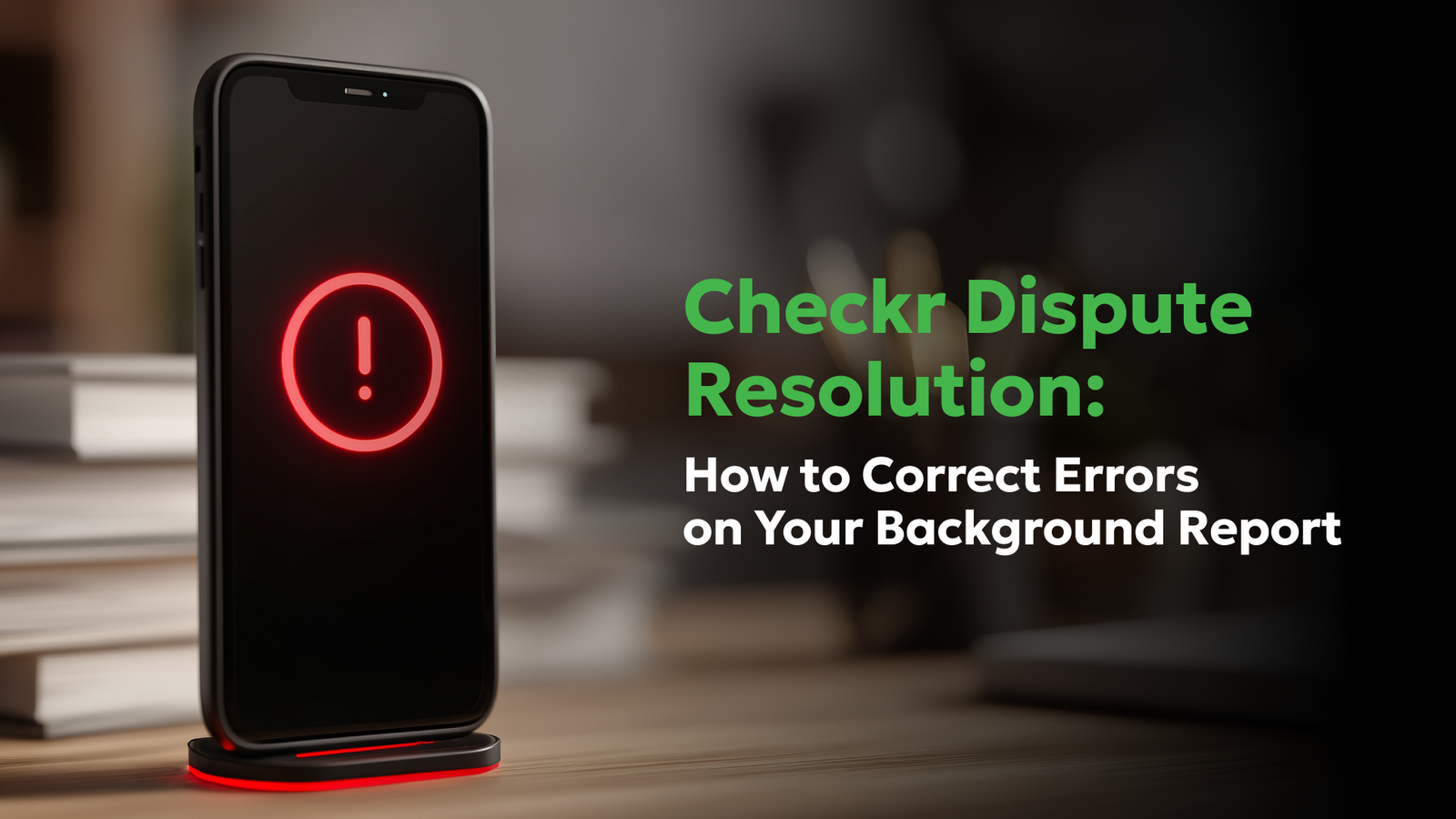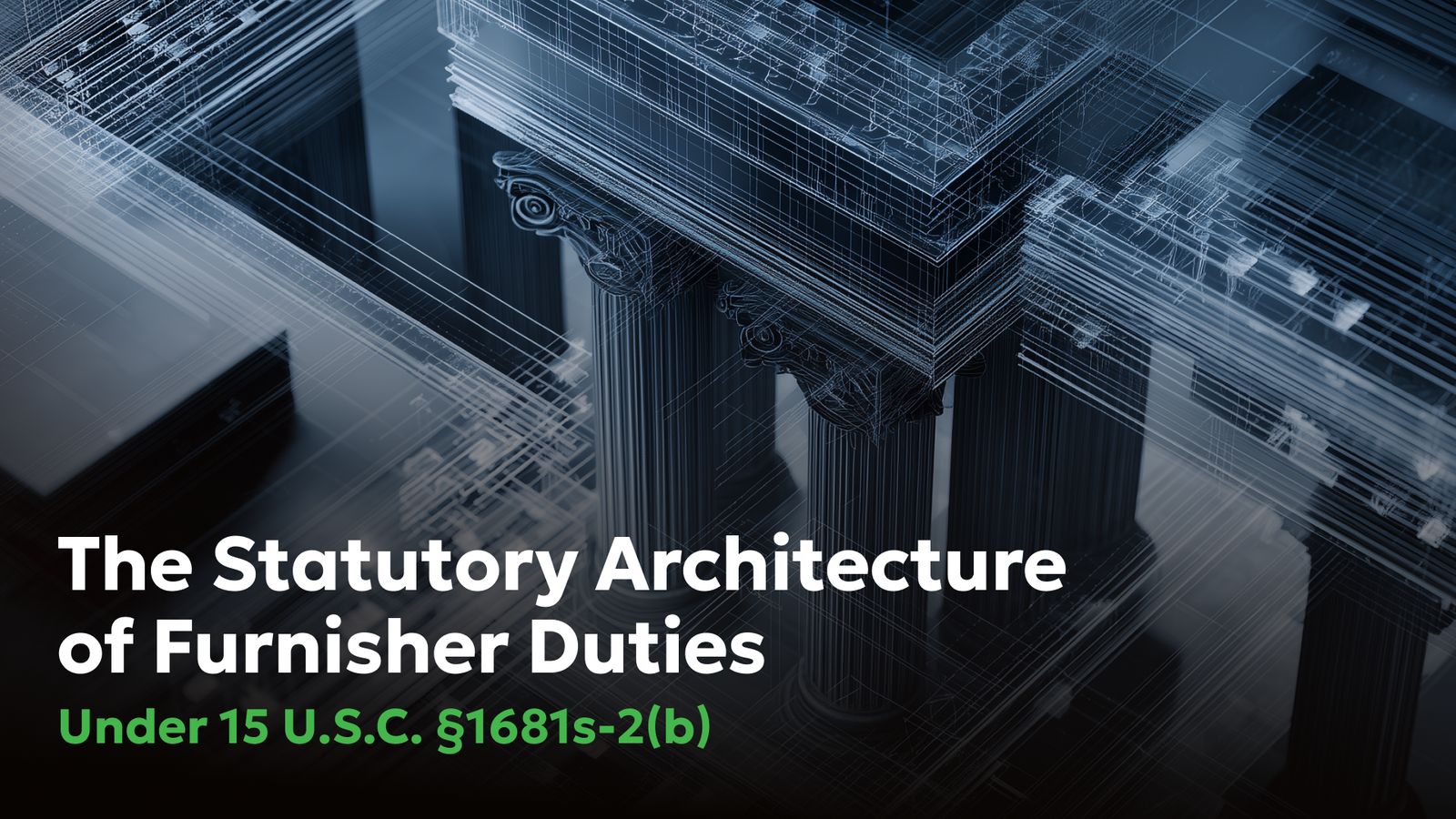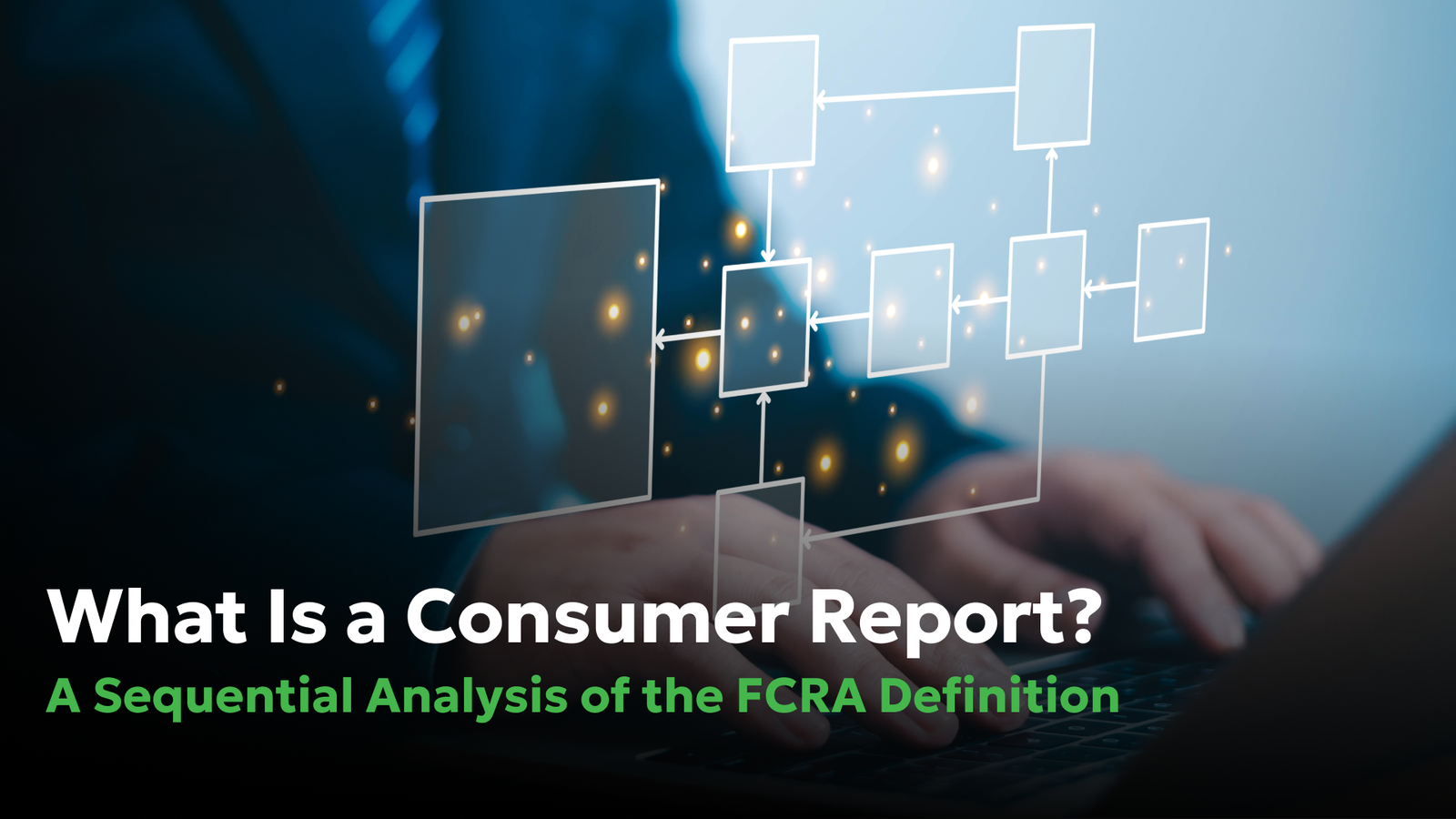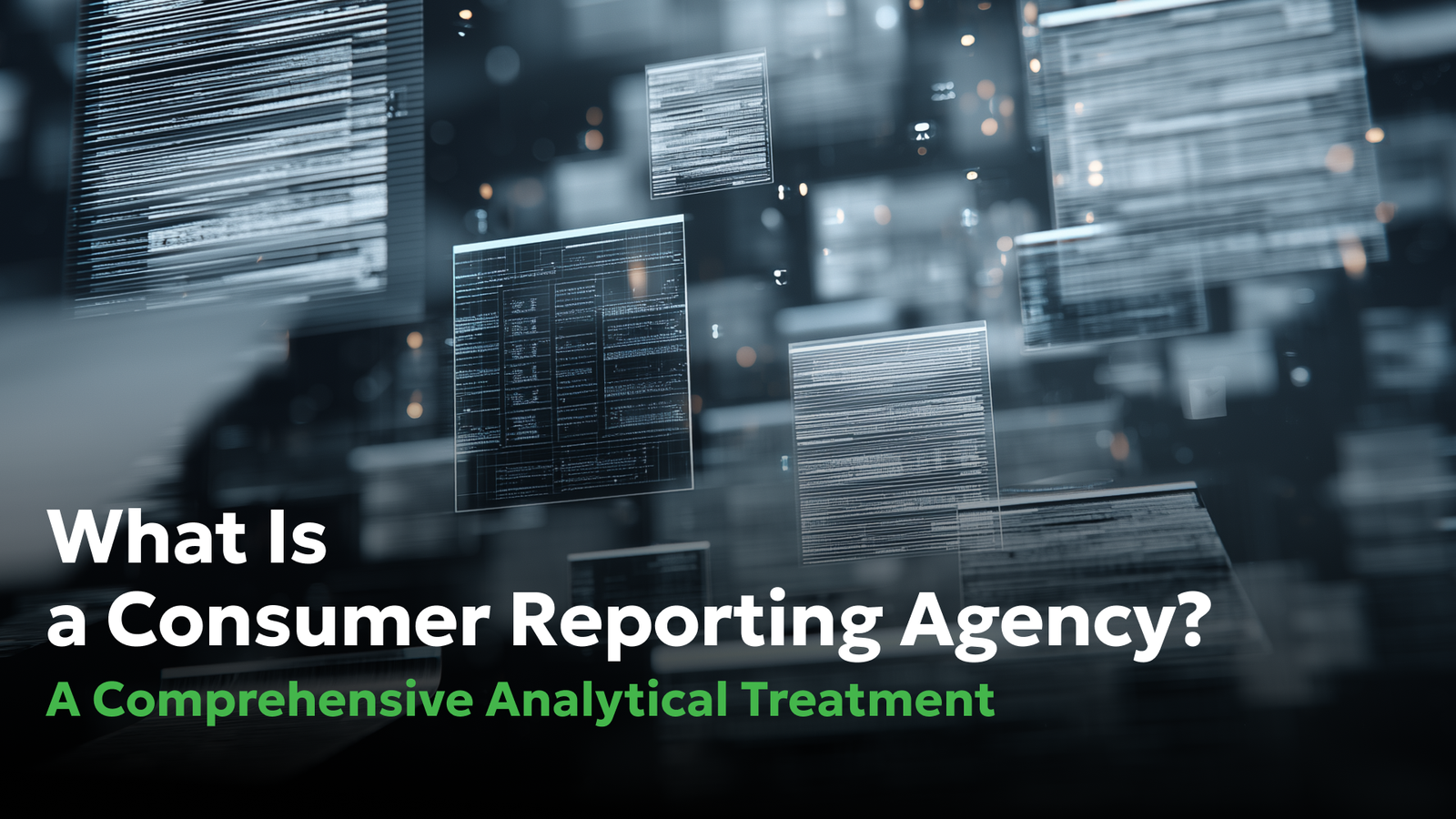Checkr Dispute Resolution: How to Correct Errors on Your Background Report
- Blog
- All about FCRA
Checkr Dispute Resolution: How to Correct Errors on Your Background Report

When “File a Dispute” Isn’t Enough
You did everything right - applied for the job, cleared the interviews, and waited for the final step: the background check. Then the rejection came, and the reason was something you’d never expect - a Checkr report showing false information. You file a dispute, attach your documents, and wait. Days turn into weeks. The email replies sound automated. The same error stays in place.
Mistakes aren’t rare. One investigation found that background screening companies routinely make errors, such as reporting another person’s record, omitting case outcomes, or misclassifying offenses.
For thousands of workers and job seekers, this story plays out the same way. The dispute process that’s supposed to fix the mistake ends up repeating it - or worse, ignoring it entirely.
Behind each stalled application is a person losing income, reputation, and trust in a system that was supposed to be fair. That’s where understanding your rights under the Fair Credit Reporting Act (FCRA) makes all the difference.
If Checkr’s dispute process failed you, if your case was closed without correction, or if you never received a real response, you have legal options to set the record straight and be compensated for the harm caused.
In This Article, You’ll Learn:
- How the Checkr dispute process works (and why it often fails).
- When to file a dispute and when to take faster legal action.
- How to submit a Checkr dispute without getting trapped by arbitration.
- What to do if Checkr ignores, delays, or mishandles your claim.
- When you can sue Checkr directly under the FCRA for unresolved or preventable errors.
Understanding the Checkr Dispute Process
Checkr runs background checks for some of the largest employers in the country, including Uber, DoorDash, Lyft, Amazon, and more. Its system is built for scale, not precision, and that’s where problems start. A single mistake on your report can block you from multiple apps. Learn specifically how to handle DoorDash background check errors.
When you file a Checkr dispute, your information goes through automated systems that contact external data vendors or court databases for verification. In theory, you’ll get an answer within 30 days. In reality, many consumers receive form letters or silence - even when they’ve provided clear proof.
The FCRA requires Checkr to reasonably investigate disputes and ensure maximum possible accuracy. Failing to do so can make them legally liable.
Tip: Always send your dispute by email (not just through the portal) and keep a copy of everything. A complete record can make or break your FCRA case later.
When to File a Checkr Dispute
Filing a dispute is the right step whenever your background report contains information that doesn’t belong to you, hasn’t been updated, or was incorrectly reported.
Common reasons to dispute Checkr reports include:
- Criminal charges marked as “pending” even after dismissal.
- Old driver’s license information that was never updated.
- Mismatched names or Social Security numbers linking you to another person’s record.
Data entry mistakes and identity mismatches continue to drive many errors. For example, one law firm described how a mistyped SSN digit can link you to someone else’s criminal record.
Even though you can and should dispute these errors, the responsibility to prevent them lies with Checkr, not you. If a report is inaccurate because of Checkr’s negligence or outdated sources, it’s already a potential FCRA violation, even before you file a dispute.
How to File a Checkr Dispute (The Right Way)
Protect your rights by following these steps carefully:
Get a free copy from Checkr through the Candidate Portal or by emailing legal@checkr.com.
Highlight mismatched data, duplicate entries, outdated cases, or any unfamiliar information.
Avoid auto-clicking “Agree to Terms” in the Candidate Portal, as it binds you to arbitration (explained below). Email your dispute with a detailed explanation and supporting documents.
Attach identification, dismissal paperwork, court orders, and updated licenses - anything that proves the report is wrong.
Checkr must respond within 30 days. Save timestamps, replies, and file receipts.
If Checkr fails to act, delays the process, or reuses the same inaccurate data, you may have grounds for a lawsuit under the FCRA.
Avoiding Arbitration: Protecting Your Right to Sue
Most people don’t realize that logging into the Checkr Candidate Portal automatically binds them to arbitration - a private process that limits their legal options. But there’s a way to protect yourself.
Here’s what to do:
- Avoid the portal if possible. Request your report or submit your dispute via legal@checkr.com instead of logging in.
- Opt out within 30 days. If you already accepted Checkr’s Terms of Service, email arbitration@checkr.com with this message: “I am exercising my right to opt out of Checkr’s arbitration agreement.”
Include your full name, date of birth, and last four digits of your SSN.
Arbitration may sound neutral, but it often favors companies. By opting out, you keep your right to sue in federal court - where the law allows for higher compensation and public accountability.
Legal Insight: Arbitration limits your leverage. Court action enforces real accountability and ensures Checkr pays your legal fees if they’re found at fault. If your dispute is ignored, your next step should be reviewing the grounds for a Checkr lawsuit.
When You Can Sue Checkr Without Filing a Dispute
You’re not required to wait for Checkr to “investigate” if their failure is already obvious. The FCRA allows you to sue immediately in certain situations, including:
- Mismatched criminal records - another person’s record listed as yours.
- Expunged or sealed cases - legally cleared information still being reported.
- Outdated data - old charges that should have been purged after seven years.
- Verification failures - incorrect SSN or license data causing job loss.
- Immediate harm - lost job, delayed income, or housing denial caused directly by the error.
If your Checkr report costs you a job or your reputation, waiting 30 days for a dispute resolution may only deepen the harm. Federal law recognizes that some mistakes are too severe to delay action.
Your Rights Under the FCRA
The Fair Credit Reporting Act protects every consumer in the U.S. from false or negligent reporting. Under this law, you have the right to:
- Access the report Checkr provided to your employer.
- Dispute false or outdated information.
- Receive corrections or deletions within 30 days.
- Seek compensation for financial loss and emotional distress.
In fact, consumer reporting issues are among the most common complaints filed nationwide. A CFPB analysis found that nearly 70% of all credit-report complaints between 2021 and 2022 were due to incorrect information, underscoring the widespread nature of reporting inaccuracies across the industry.
If Checkr ignored your dispute, reused inaccurate data, or refused to correct verified errors, it’s not a customer service failure - it’s a violation of federal law.
Checkr Dispute Ignored or Denied? We Can Help
A stalled or unanswered Checkr dispute can leave you stuck - unable to work, unable to move forward, and unsure how to fix the damage. When the process breaks down, you still have rights and real legal protections under the FCRA.
At Consumer Attorneys, we step in when that system fails. Our team helps people like you:
- Correct false, outdated, or mismatched records, whether the error originates with Checkr or the underlying data source,
- Act when disputes are ignored or improperly “verified” without a meaningful investigation,
- Pursue recovery for lost wages and emotional harm caused by negligent reporting.
You never pay anything out-of-pocket - the law requires the offending company to cover attorney’s fees when they’re at fault. If your dispute went nowhere, you’re not out of options. We help you move from uncertainty back to control.
Frequently Asked Questions
Not automatically. Checkr updates the employer only if the disputed information is corrected or removed. Filing a dispute does not harm your application and cannot be used against you.
Not formally, but providing clear documents (court orders, ID, dismissal records, updated license) upfront helps avoid delays. Re-sending the same dispute multiple times does not reset or speed up the timeline.
Not instantly. Some platforms (Uber, DoorDash, Lyft) automatically pull updates; others require re-verification or trigger a new background check. A corrected report with Checkr does not guarantee immediate reinstatement. A corrected report with Checkr does not guarantee immediate reinstatement. For more information on how individual platforms handle these updates, see our guide on how long a Lyft background check takes.
It can, but the platform makes the final decision. Even after Checkr fixes the error, the employer must manually review the case and reactivate your account.
Official documents:
- Court records showing dismissal/closure,
- Expungement orders,
- Updated driver’s license,
- Proof of identity (ID, SSN card),
- DMV printouts.
Screenshots of app messages or employer emails can help show the impact, but don’t correct the underlying data.
Corrected information should not appear in future reports, but mistakes can resurface if the underlying source wasn’t fixed or the data is reinserted later. The FCRA limits reinsertion, but it does not guarantee errors will never recur.
No. The FCRA protects you from retaliation. Disputing errors does not make you “high risk,” and it does not slow down future screenings.


Daniel Cohen is the Founder of Consumer Attorneys. Daniel manages the firm’s branding, marketing, client intake and business development efforts. Since 2017, he is a member of the National Association of Consumer Advocates and the National Consumer Law Center. Mr. Cohen is a nationally-recognized practitioner of consumer protection law. He has a we... Read more
Related Articles




R
ONGS™You pay nothing. The law makes them pay.







